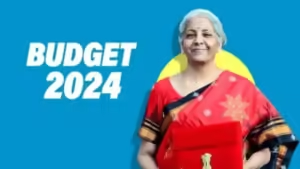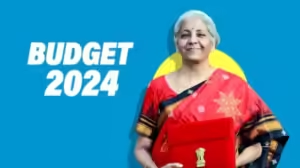GST WEEKLY UPDATE : 48/2023-24 (25.02.2024) By CA Vipul Khandhar

By CA Vipul Khandhar
- Advisory: Enhanced E-Invoicing Initiatives & Launch of Enhanced:
Dear Taxpayers,
- GSTN on occasion of one year of the successful going live with the additional five new IRP portals, the e-invoice master information portal, and the e-invoice QR Code Verifier app, announces the launch of the revamped e-invoice master information portalhttps://einvoice.gst.gov.in . This enhancement is part of ongoing effort to further improve taxpayer services. New Features of the revamped E-Invoice Master Information Portal are as follows:
- PAN-Based Search: Users can check the e-invoice enablement status of entities using their Permanent Account Number (PAN) in addition to search with GSTIN.
- Automatic E-invoice exemption List: The portal now automatically publish updated list with all GSTINs that have filed for e-invoice exemptions at the start of the month and is available for users to download.
iii. Global Search Bar: A comprehensive search tab has been introduced that allows for quick access to the information across the portal.
- Local Search Capabilities: Enhanced search functionality within advisory, FAQ, manual, and other sections for efficient information access.
- Revamped Advisory and FAQ Section: Now organized year-wise and month-wise for easier reference, offering comprehensive guidance.
- Daily IRN Count Statistics: The portal now includes statistics on the daily Invoice Reference Number (IRN) generation count.
vii. Dedicated Section on Mobile App: Information and support for the e-invoice QR Code Verifier app are readily available.
viii. Improved Accessibility Compliance and UI/UX: Adhering to the GIGW guidelines, the portal now offers improved features such as contrast adjustment, text resizing buttons, and screen reader support for enhanced accessibility.
- Updated Website Policy: The website policy has been thoroughly updated including the website archival policy, content management & moderation policy, and web information manager details.
- In the past year alone, more than 1.6 crore e-invoices were reported through the new IRPs, demonstrating the robustness and efficiency of the system. Furthermore, GSTN has introduced an internal e-invoice comprehensive health dashboard to further enhance monitoring of the e-invoice ecosystem. As a result of these improvements in the GSTN E-Invoicing System, today we have:
- Expansion of IRP Portals: Today, GSTN operates a total of six IRP portals through its partners, running robustly alongside the centralized de-duplication system.
- E-Invoicing Reporting Accessibility: All taxpayers who are eligible for e-invoicing can report e-invoices through any of these six IRP portals. The reporting can be done online, via APIs, or through a mobile app, all free of cost, making the process accessible and convenient for taxpayers nationwide.
- Hourly Auto populationof e-invoices in GSTR-1 from new IRPs. Additionally, we are working with NIC-IRP to enable hourly auto-population of e-invoices in GSTR-1 reported on the NIC-IRP 1&2 portal.
- E-invoice downloadfor past six months for both buyers and sellers via e-invoice portals and G2B APIs.
- E-invoice QR code verifier Appfor verification of e-invoice, and search IRN functionality for online verification of IRN.
- Additionally, an enhanced version of the e-invoice verifier app, packed with new features, will be launched shortly.
- GSTN remains dedicated to excellence in taxpayer services. GSTN appreciates your continued support and look forward to further facilitate your compliance journey on the portal.
- CBIC notifies “Public Tech Platform for Frictionless Credit” to Improve Credit Ecosystem Efficiency under GST Act:
The CBIC vide Notification No. 06/2024 –Central Tax dated February 22, 2024, notified the “Public Tech Platform for Frictionless Credit” as a system for sharing information through the common portal with consent. This platform, conceived by the Reserve Bank of India and developed by its subsidiary, Reserve Bank Innovation Hub, aims to foster a large credit ecosystem. It enables digital access to information from various data sources for financial service providers and data service providers through an open, enterprise-grade IT platform with a standard, protocol-driven, open and shared API framework.
In exercise of the powers conferred by section 158A of the Central Goods and Services Tax Act, 2017 (12 of 2017) and section 20 of the Integrated Goods and Services Tax Act, 2017 (13 of 2017), the Central Government, on the recommendations of the Council, hereby notifies “Public Tech Platform for Frictionless Credit” as the system with which information may be shared by the common portal based on consent under sub-section (2) of Section 158A of the Central Goods and Services Tax Act, 2017 (12 of 2017).
Explanation.— For the purpose of this notification, “Public Tech Platform for Frictionless Credit” means an enterprise-grade open architecture information technology platform, conceptualised by the Reserve Bank of India as part of its “Statement on Developmental and Regulatory Policies” dated the 10th August, 2023 and developed by its wholly owned subsidiary, Reserve Bank Innovation Hub, for the operations of a large ecosystem of credit, to ensure access of information from various data sources digitally and where the financial service providers and multiple data service providers converge on the platform using standard and protocol driven architecture, open and shared Application Programming Interface (API) framework.
- Important Notice: Deadline Alert! :
To all those eligible for refunds between March 20 and February 22: The deadline to submit refund requests is February 28, 2024.
During the COVID period, certain limitations were enforced, and the timeframe from February 20 to February 22 was exempted from the two-year refund window, as outlined in 13/2022 CT Dated 05/07/2022.
Therefore, make sure to apply for any outstanding refunds for the period spanning March 20 to February 22 by February 28, 2024.
- AAR & Important Judgements:
(i) Hon’ble Madras High court Decision Regarding Penalty can not be imposed 100% if notice has been served under sec 73 of the cgst act:
(Applicant – K.S.Janarthanam v. Deputy State Tax Officer)
- 100% Penalty can’t be imposed if notice was issued under section 73 of the CGST Act and not under section 74 of the CGST Act
- The petitioner received a notice under section 73 of the TNGST Act, 2017 and subsequently an assessment order.
- Upon applying for rectification, the petitioner admitted its tax liabilities for CGST and SGST but requested relief from the penalty.
- The respondent argued that the penalty was imposed due to the rectification application.
- The court held that since the notices were issued under section 73 and not section 74 of the TNGST Act, 2017 the penalty imposition at 100% on SGST dues required interference.
- Therefore, the impugned order was to be quashed only concerning the imposition of penalty under two heads.
- ITC claims should not be rejected solely due to their absence in GSTR-3B, mandating a comprehensive review of GSTR-2A and GSTR-9 for a thorough assessment.in the case of Sri Shanmuga Hardwares Electricals vs The State Tax Officer Writ Petition Nos. 3804, 3808 & 3813 of 2024 and W.M.P.Nos. 4105, 4107, 4110, 4111, 4116 & 4119 of 2024, Madras High Court
(ii) Hon’ble Madras Highcourt Decision Regarding ITC claims should not be rejected solely due to their absence in GSTR-3B, mandating a comprehensive review of GSTR-2A and GSTR-9 for a thorough assessment:
The petitioner challenged assessment orders for 2017-2020 based on claiming Input Tax Credit ITC using GSTR-2A despite filing “NIL” returns in GSTR-3B.
Issue:
Whether the petitioner was entitled to claim ITC, which was not claimed in the GSTR-3B returns but was reflected in the GSTR-2A and subsequently in the GSTR-9 annual returns?
HELD:
The High Court of Madras quashed the assessment orders and remanded the case for reconsideration. It held that the assessing officer should not reject the ITC claim solely because it was not claimed in the GSTR-3B returns.
Instead, the officer should examine all relevant documents to assess the validity of the ITC claim.
The petitioner has to submit all relevant documents and the assessing officer was instructed to issue fresh assessment orders after a reasonable opportunity for a personal hearing.
(iii) AAR On GST on Composite Supply for Agriculture, forestry, fishing & animal husbandry Support Services:
(Applicant – Archipel India Foundation)
In a recent ruling by the Authority for Advance Ruling (AAR) in Andhra Pradesh, the case of Archipel India Foundation brought to light significant considerations regarding the Goods and Services Tax (GST) on composite supplies, particularly within the scope of agricultural, forestry, fishing, and animal husbandry support services. This article aims to dissect the ruling, providing clarity and guidance for organizations engaged in similar domains.
Archipel India Foundation, positioned as a social enterprise, sought to clarify the GST implications of its activities under a specific project agreement. The foundation’s work, aimed at environmental conservation and agricultural improvement, raised questions about its classification under GST as a ‘composite supply’ and whether its principal supply falls under “Support services to agriculture, forestry, fishing, animal husbandry,” as specified in Notification 11/2017-Central Tax (Rate) dated June 28, 2017, which could potentially qualify for a NIL GST rate.
Upon careful examination, the AAR concluded that the foundation’s activities did not qualify as composite supply with the principal supply being the support services in question. This decision was primarily based on the foundation’s involvement in carbon credit trading, which was seen as a commercial operation rather than purely agricultural or environmental support. This interpretation meant that the foundation’s activities were not eligible for the sought GST exemption under the specific notification.
Disclaimer:
This publication contains information for general guidance only. It is not intended to address the circumstances of any particular individual or entity. Although the best of endeavour has been made to provide the provisions in a simpler and accurate form, there is no substitute to detailed research with regard to the specific situation of a particular individual or entity. We do not accept any responsibility for loss incurred by any person for acting or refraining to act as a result of any matter in this publication.
THANKING YOU.





